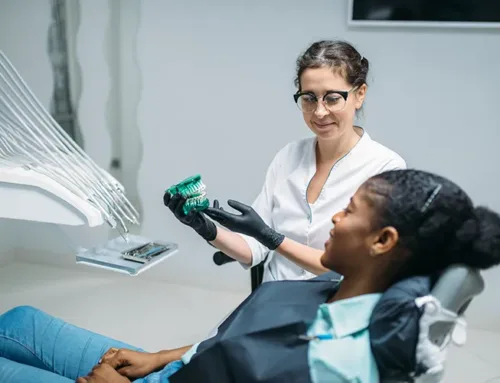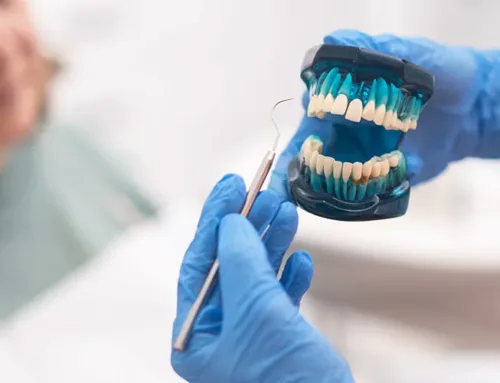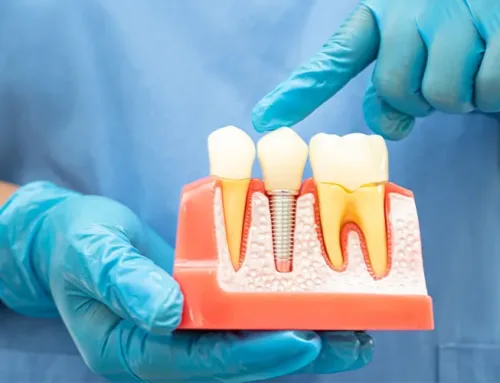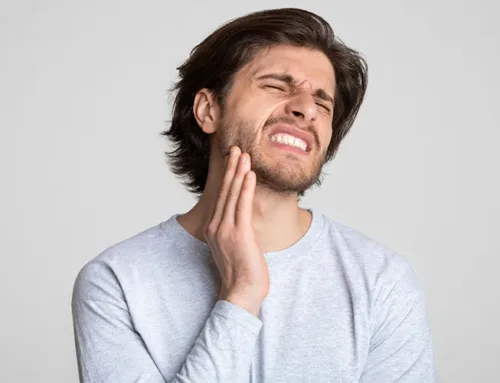When Do I Need a Nightguard?
August 5, 2022
If you’re experiencing pain in your jaw, have frequent headaches, or are prone to grinding your teeth (bruxism), you may need a nightguard. While many people believe that a nightguard is only necessary if they are suffering from significant discomfort, this isn’t always the case, and in fact, there are some circumstances when it is advisable to wear a nightguard even if symptoms aren’t present. In this blog post, we’ll discuss when a nightguard might be necessary and how to go about getting one.
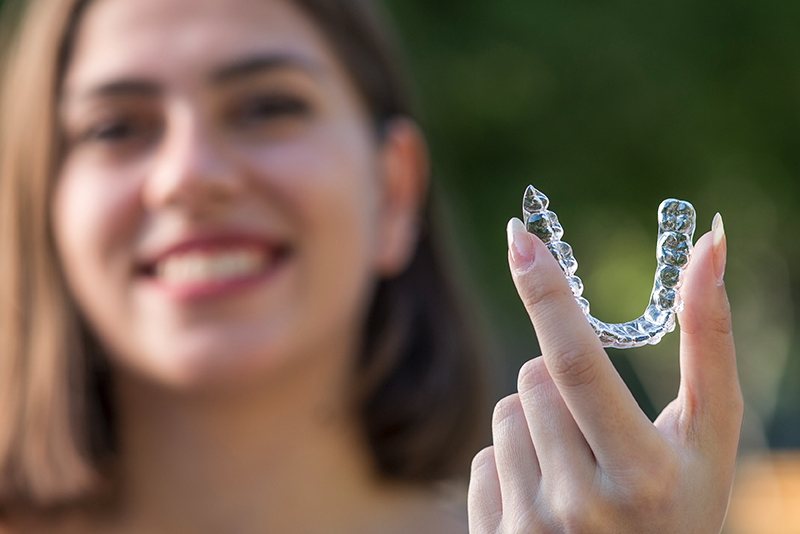
What Is a Nightguard?
A nightguard is a dental appliance that is worn while you sleep to protect your teeth from damage. They are very similar to mouthguards that are worn during contact sports, that protect your teeth from high-risk injuries, except that nightguards are made from a soft material like acrylic. Nightguards are a non-invasive, and popular option for patients with temporomandibular joint disorder (TMJ) and bruxism, as it can help alleviate the pain and discomfort caused by these conditions.
When Is Wearing a Nightguard Necessary?
There are a few situations in which it is generally advisable to wear a nightguard:
- If you are waking up with pain in your jaw, or you wake with headaches.
- Your teeth show signs of damage (excessive wearing, fractures, chips).
- Your partner has complained about you grinding your teeth at night.
- You’ve been diagnosed with TMJ or bruxism disorders.
- You frequently clench your jaw when under stress or when experiencing heightened emotions.
- You have radiating pain that stems from your jaw into your neck or face.
If you fall into any of these categories, it is generally advisable to speak to your dentist about getting a nightguard.
What Is Bruxism?
Bruxism is the medical term for when an individual frequently grinds (moves the jaw back and forth), or clenches the jaw (bite down with excessive force for extended periods of time) while sleeping. It can be caused by stress, anxiety, or anger and the grinding itself can cause more stress on the body as it damages your teeth. Because bruxism normally occurs during sleep or in times of stress, most people go undiagnosed until their partner says something or until their dentist notices the signs of wear. If left untreated, bruxism can lead to a number of dental problems including fractures, chips, and excessive wearing of tooth enamel.
Can Bruxism Happen During the Daytime?
Yes, bruxism can occur during the daytime if the individual is experiencing intense bouts of frustration, anger, anxiety, or stress. To help reduce the amount of teeth grinding that occurs, limit the consumption of alcohol and caffeine, do not smoke before bedtime, and use relaxation techniques before bed to calm your body. Relaxation techniques can include meditation, nighttime walks, or listening to music.
What Is TMJ Disorder?
TMJ disorder is a condition that affects the temporomandibular joint (the joint where your lower jaw connects to your skull). TMJ disorder is most often caused by stress, although it can also be an injury or misalignment of the teeth. Symptoms of this can include:
- Tenderness or pain in the jaw, neck, shoulders, and face.
- The inability to open your mouth wide.
- Difficulty in chewing your food.
- Clicking or popping noises when opening or closing your mouth.
- A jaw that gets stuck or locked in place.
- A sudden and uncomfortable bite.
- Swelling on the side of the rough joint.
- Frequent headaches.
- Bruxism.
While there are other potential causes of these symptoms, if you’re experiencing any of them, it is advisable to speak to your dentist about getting a nightguard. A nightguard can help manage the pain caused by TMJ disorder, so don’t hesitate in asking to get fitted for a nightguard.
How Do I Get Fitted for a Nightguard?
To get fitted for a nightguard, simply let your dentist know that you would like one for sleeping. The process for getting one is simple and painless, and requires a short trip to your dentist to have an impression made of your teeth. This impression is used to create a mold of your teeth, which is sent off to a lab. The lab fabricates your custom nightguard out of durable plastic.
When it comes back from the lab, your dentist will call you in for another appointment, to ensure that the guard fits your mouth properly. The nightguard will not impact your breathing, and although it may feel a little odd to wear it at first, you should get used to it fairly quickly.
Can I Get a Nightguard From a Pharmacy Instead?
There are nightguard options at your local drugstore, but these will not be custom fitted to your bite, and often come in stock sizes or use the method of “boil and bite”. Unfortunately, no matter how careful you are with these, they often poorly fit due to the material used (rubber-based), and are extremely uncomfortable to wear.
Wrapping It Up
If you’ve noticed the effects of teeth grinding or have been told that you grind your teeth in the night, it is important to book an appointment as soon as possible so that we can prevent any further damage to your teeth. Give our team a call at (813) 333-1922, or schedule an appointment with us on our website.




